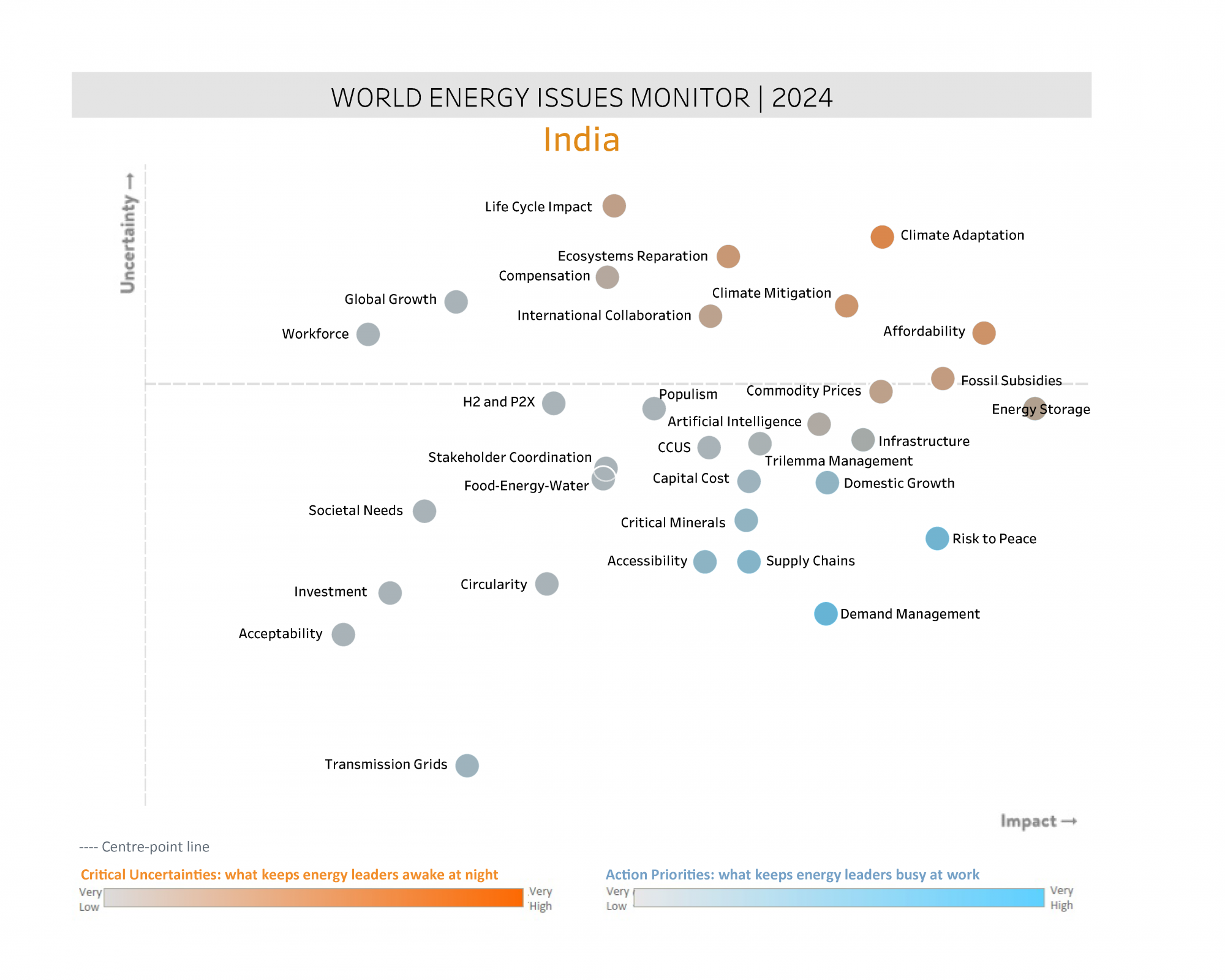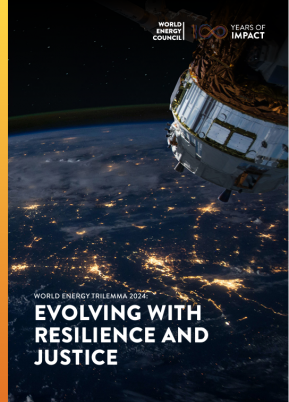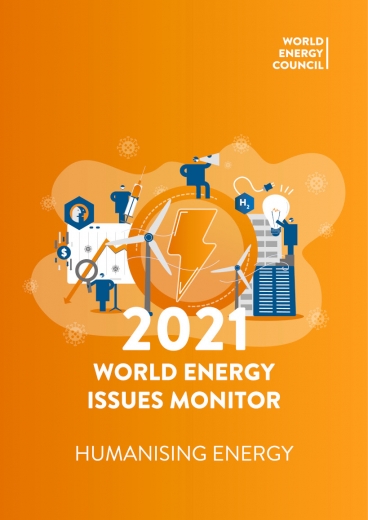The India Member Committee of the World Energy Council aims to be the foremost energy think-tank of the country and the voice of the sector. The organisation is truly representative of the Indian energy sector and contributes to advancing the energy goals of India. Its mission is to facilitate review, research and advocacy of energy technology, policy and strategy; to provide a platform for dialogue within the Indian energy sector; and to collaborate with member committees worldwide towards long term sustainable supply and use of energy. The India Member Committee brings together high-level players in the energy sector together to forge a better understanding of energy issues towards identifying and implementing sustainable, effective solutions.
Mr Gurdeep Singh, is Chairman & Managing Director of NTPC Limited, the largest power generating company in India. Mr Singh has nearly three decades of rich and varied experience in the sector. He started his professional journey with NTPC and his career spans both Indian and Multi-national Companies such as PowerGen, CLP, IDFC, CESC and AES, Gujarat State Electricity Corporation Limited (GSECL). During his tenure as Managing Director, GSECL, he conceptualized and implemented world's first canal top solar power plant. A mechanical engineer from National Institute of Technology, Kurukshetra, India, he has obtained leadership training from IIM Ahmedabad and global institutions like Saïd Business School-Oxford, Darden School of Management-Virginia, USA, Singapore Civil Services College-Singapore.
Energy in India

Changes Since the Last Iteration
The latest survey results show an evolution in key uncertainties, shifting from broad issues like climate change and commodity prices to more specific concerns such as climate adaptation, mitigation, reparations, affordability, and fossil fuel subsidies. This reflects a deeper understanding of the multifaceted nature of climate challenges and the economic implications of the energy transition. Increased global awareness and international dialogues, like COP26 and COP27, have spotlighted these specific climate issues, emphasizing the need for targeted actions. The addition of affordability and scrutiny of fossil fuel subsidies highlights the importance of ensuring that clean energy solutions are accessible to all socioeconomic groups and that policies do not perpetuate economic inequality.
Despite these changes, the core action priorities remain consistent: demand management, accessibility, supply chains, domestic growth, and risk to peace. This consistency underscores ongoing critical challenges in the energy sector, indicating that while our understanding of uncertainties has evolved, the fundamental areas requiring attention have not shifted significantly.
Five-Year Country Trends
Over the past five years, key uncertainties and action priorities in the energy sector have evolved significantly, reflecting technological advancements and shifting geopolitical dynamics. From 2019 to 2023, climate change and commodity prices have consistently remained central uncertainties. The table below summarizes the Key Uncertainties and Action Priorities for each year during the period 2019-2023.
| Year | Key uncertainties | Action priorities |
| 2019 | Regional Integration, Electric Storage, Market Design & Regulation, Trade Barriers, US Policy | Renewable Energy, Energy Efficiency, India growth |
| 2020 | Extreme weather, Middle East Dynamics, Electric Storage, Climate change Management | India Growth, Energy Efficiency, Renewable Energy |
| 2021 | Commodity prices, Electric storage, Cyber security, Economic growth, geopolitics | Energy efficiency, Renewable Energy, Market Design, Regulations |
| 2022 | Commodity prices, Climate change management, electric storage innovation, Economic growth market design | Quality energy access, Renewable Energies, Energy Efficiency, Digitalization |
| 2023 | Climate adaptation, Climate mitigation, climate reparations, affordability and fossil fuel subsidies | Demand Management, Accessibility, supply chain, domestic growth, Risk to peace |
Over this period, the trend towards addressing electric storage moved from being a key uncertainty to a more actionable area, due to technological advancements in lithium-ion batteries and supportive policy landscapes. Energy efficiency has consistently been an action priority, recognized as a straightforward, impactful measure in the energy transition. Overall, the trends indicate an accelerating focus on addressing specific climate issues and integrating advanced technologies into the energy sector, while maintaining steady progress on foundational priorities like energy efficiency and renewable energy.
Leadership in Community Integration
In India's energy transition, several leadership trends are emerging that integrate people and communities, focusing on inclusivity, innovation, and sustainability. These trends involve various stakeholders including government, corporations, community-based organizations, and educational institutions, each playing a crucial role in ensuring the transition benefits all segments of society.
- Government Initiatives: The government is spearheading initiatives like the National Hydrogen Mission, PM Suryodaya Yojana which aims to install rooftop solar over 1 crore households and PM-KUSUM (Pradhan Mantri Kisan Urja Suraksha evam Utthaan Mahabhiyan), promoting decentralized solar solutions and supporting farmers with solar pumps and grid-connected solar power plants. These initiatives aim to enhance rural electrification, increase farmers' income, and ensure sustainable energy access.
- Corporate and Industry Leadership: Major corporations which include both PSUs in energy sector as well as private entities in energy sector are investing heavily in renewable energy projects. They are developing large-scale solar and wind farms and exploring hydrogen energy.
- Grassroots Movements and NGOs: NGOs like Barefoot College (recently awarded by the World Energy Councilat the 26th World Energy Congress in Rotterdam) empowers rural women by training them as solar engineers who bring electricity to their communities. This initiative not only provides clean energy but also promotes gender equality and local leadership.
- Innovative Financing Models: Crowdfunding platforms are being used to raise funds for community solar projects, enabling broader participation in the energy transition. Microfinance institutions are also providing loans for renewable energy installations, particularly in rural areas, ensuring accessibility for low-income households.
- Educational and Training Programs: As per World Bank, ‘India is the only country in the region where the government has established a Skills Council for Green Jobs (SCGJ), which identifies the skilling needs and promote development to meet the job requirements for “green business” development’. Such programs are creating a skilled workforce for the renewable energy sector.
INSIGHTS FROM THE 2024 ISSUES SURVEY RESULTS
Faster, Fairer, and More Far-Reaching Energy Transitions with a Focus on Scaling Up
The 2024 Issues Survey results indicate a clear shift towards specific climate-related concerns such as climate adaptation, mitigation, and reparations, along with economic considerations like affordability and fossil fuel subsidies. This suggests a growing recognition of the need for rapid and inclusive energy transitions. The focus on affordability and subsidies highlights the importance of ensuring equitable access to clean energy solutions, enabling a fairer transition.
Policy & Ecosystems to Enable Transparent, Transformational, Trustworthy Transitions
The emphasis on climate adaptation, mitigation, and reparations points to the necessity of robust policies and ecosystems that support transparent and transformational changes. The survey results reflect a demand for clear, actionable policies that address both mitigation and adaptation strategies. The action priorities focusing on accessibility, supply chain management, and domestic growth further highlight the need for comprehensive ecosystems that support these transitions.
Climate Risks & Resilience
The inclusion of climate adaptation and mitigation as key uncertainties highlights the growing awareness of climate risks and the need for resilience. By identifying these as critical areas, the results suggest that stakeholders are increasingly prioritizing strategies that not only reduce greenhouse gas emissions but also enhance the ability of communities and systems to withstand and recover from climate impacts.
Resource Allocation, Active Management & Money Flows
The focus on climate reparations, affordability, and fossil fuel subsidies indicates that financial resources need to be allocated in a manner that supports vulnerable populations and regions. Consistent priorities such as renewable energy, energy efficiency, and domestic growth suggest ongoing investment in sustainable technologies and infrastructure.
Acknowledgements
India Member Committee
Downloads

India World Energy Trilemma Country Profile
Download PDF
World Energy Trilemma Report 2024
Download PDF
India Energy Issues Monitor 2024
Download PDF








